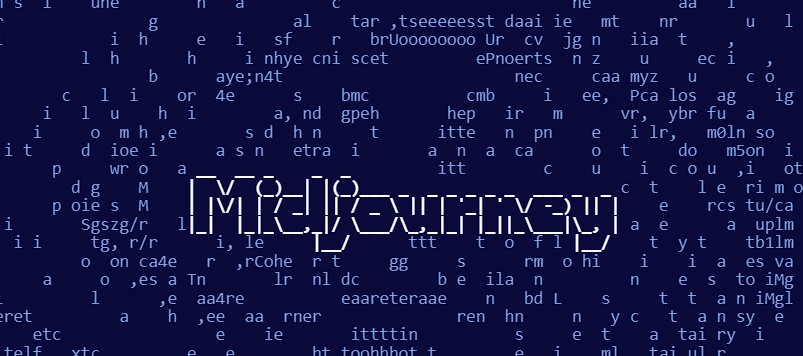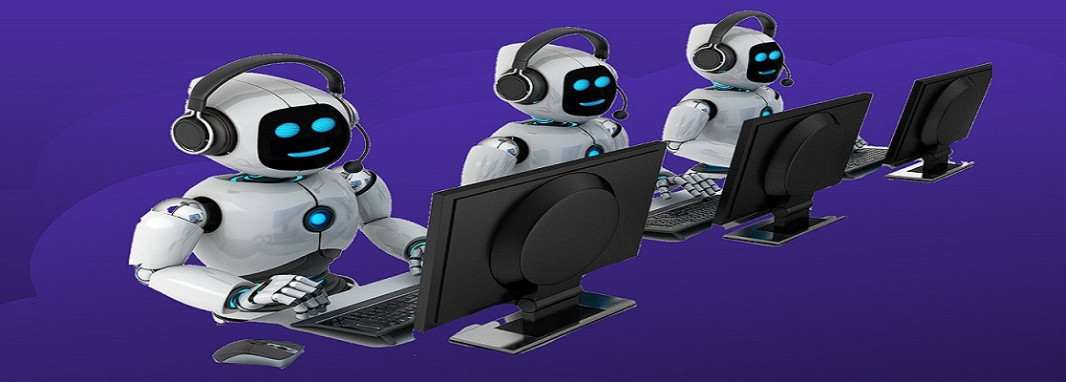Artificial intelligence (AI) has had a huge impact on the world we live in, with all sorts of applications across all industries, from healthcare to entertainment.
It's also helped because AI is supported by a host of complementary technologies, most notably machine learning.
We're going to go ahead and assume that if you've come this far on your journey, you already have a pretty good idea of what AI and machine learning are and what they're used for, so we're not going to rehash all of that for you.
Instead, we're going to take a look specifically at how companies are using AI and machine learning to provide a new level of customer support and customer service.
And so, with that in mind, let's go ahead and get started.
How Artificial Intelligence is Used in Customer Service
To understand how AI is used in customer service, we first need to appreciate that AI powers the vast majority of modern tools, whether we're aware of it or not.
We can consider AI as the powerful engine that sits beneath everything from project management software to content creation tools.
As for AI's applications in the field, there are more than you can shake a metaphorical stick at.
Top 7 Use Cases for AI in Customer Service
AI customer service applications are all over the place, and AI in customer service is so widespread that if you're using any software to help you out, the chances are that AI sits beneath the hood.
We distinguished seven of the most common use cases when we talk about AI for customer service.
Chatbots
Chatbots are one of the most common use cases at the intersection of AI and customer service, and there's a simple reason for that.
AI-powered chatbots can work around the clock and provide front-line business support, triaging customer queries and answering the simplest ones before connecting the more complicated queries to customer service representatives.

Amtrak is using chatbots to answer around five million customer service questions every year, and the initiative has had a vast and measurable impact.
According to Amtrak, it's delivered an 800% return on investment, increased bookings by 25%, and saved $1 million in customer service costs in the space of a single year.
Self-Service
Another key use of artificial intelligence for customer service is to power self-service platforms, which software-as-a-service companies often use to carry out sales functionality.
The idea is to create a platform where the users can try out the program and then decide when to purchase it themselves.
This is an interesting use case for artificial intelligence customer support because the algorithms can determine when and how to prompt users to make their purchases.
It's also noteworthy for being an example of machine learning customer support thanks to its ability to learn from one customer and to use those learnings to boost the conversion rate for another.
Natural Language Processing (NLP)
Natural language processing is a subcategory of AI in which the algorithm deals with processing and understanding language.
This can take the form of understanding speech inputs, reading written or printed text, formulating responses to queries, and providing verbal answers, like smart assistants.
A great example of this from the healthcare industry is Roche, which provides medications that treat over 130 million people yearly.
They're using natural language processing to process pathological and radiological reports to extract facts that can then be quickly and easily presented to physicians.
Regarding artificial intelligence in customer service, NLP has widespread applications.
For example, it could process emails or social networking data to identify the subject matter of any queries or complaints and then forward them to a relevant representative.
Virtual Assistants
Virtual assistants are one of the most well-known and widely used types of customer service AI because they allow companies to provide on-the-go assistance to customers and potential customers.
We came across a great example of this where a client wanted to enhance its FAQ section.
To make this happen, they used AI-powered customer service to detect the context of problems and the customer's current mood using sentiment analysis and ML customer service algorithms.
For simple issues, the customers were linked to FAQs. For other more hard queries, they were connected to a human agent who could help them.
Robotic Process Automation
The idea behind robotic process automation(RPA) is to use AI and machine learning to automate the processes that machines follow.
This is relevant to AI and machine learning for customer service because it enables companies to optimize and automate many of their processes to standardize them better and to avoid problems from occurring in the first place.

Amazon uses support AI in its warehouses to enhance efficiency and to automate key parts of its fulfillment process.
By deploying robotics and advanced AI, machine learning algorithms, they've been able to boost productivity by 20% and unlock all of the savings that come with that.
Content Creation
Content plays a vital role in customer support, allowing companies to create FAQs or how-to guides.
The problem is that creating content takes time, and as we all know, time is money.
The good news is that AI has widespread applications regarding content creation, as we're about to see.
AI for Blogs Generation
AI is already being used to generate blog content in some industries.
For example, students use Quillbot AI to help them write essays and research papers faster and with fewer errors.
Another example is in the financial industry, companies often use AI to generate updates on stock prices.
It works because the AI support algorithms are tasked with generating simple articles that are super formulaic and because no human could react quickly enough or process enough stock positions to do the job themselves.
Many content creators also use tools like Grammarly or Jasper.ai to help them to do their jobs better.

AI for Images Generation
The most common use of AI for image generation is to combine elements of existing images to create something new.

AI image generators are already going viral across social networking sites (and on TikTok in particular), and there are many generative AI tools like This House Does Not Exist, This Person Does Not Exist, and Mid Journey.
AI for Music Generation
When it comes to music generation, AI is often used to create royalty-free background music that can be used in corporate videos.
Then there's OpenAI, which was founded by Elon Musk and has a piece of technology called Jukebox, which can generate music and even basic vocals across various styles.
AI for Programming
AI programming algorithms work in much the same way as the other types of creative AI we've covered, and they're most helpful because they can save time and drive efficiencies.
This is good news for companies and developers because being able to create code in less time and with less work means saving vast amounts of money on development costs.
Machine Learning
Machine learning is one of the artificial intelligence's sister technologies and is about enabling an algorithm to "teach" itself in the same way that human beings do.
There are different ways to go about doing this, but the end result is always the same – an algorithm that gets smarter and smarter as it has access to more and more data.
How is Machine Learning Being Used in Customer Service?
Machine learning customer service is customer service on steroids.
In the same way that Netflix uses ml to provide super-relevant suggestions about the kinds of things that people might want to watch, your customer service team can use machine learning solutions to provide more tailored and personalized marketing messages.
Advantages of Machine Learning for Customer Service
There are many advantages to machine learning in customer service, and each of those advantages helps to give a good indication of why artificial intelligence customer service is so powerful.
Let's take a look at a few of those key advantages.
Helps to understand the client's subconscious intent
In many cases, even the customer needs help understanding their wants and needs.
Again, going back to the example of Netflix, when we decide to find something to watch, we normally have a subconscious idea of what we're in the mood for. It's Netflix's job to figure that out.
For AI customer services, we need to understand what the client wants better than they understand themselves.
That will allow us to serve them with the answers to their queries and pre-empt any problems they might have.
Identifies patterns in customer behavior
Another important use of customer service artificial intelligence is to identify patterns in customer behavior.
As in the previous one, we'll better understand who we're talking to and what they need so that we can cater to those needs and give them the best buying experience.
Customer support AI is perfect for this job because AI algorithms are essentially prediction machines.
Using AI customer support tools, companies can identify the patterns in how people act and then adapt their processes accordingly.
For example, they can provide answers to people's questions before they even ask them.
Predict what person will respond
This builds on what we said before about AI in customer support because it taps into their abilities as prediction machines to determine who's most likely to respond to your messages.
Again, this can be done both on an individual level and as a whole.
Part of this is because of propensity modeling, an approach to AI that determines individuals' propensities to take a certain action.
This could be to identify how likely they are to experience a particular problem, or with something like Netflix, it could be all about determining how likely they are to watch a specific piece of content.
Makes customer service more efficient
AI excels when it's being used to drive efficiencies, which is why it's so helpful in making customer service more efficient. As we've covered elsewhere in this article, it can even be so efficient that you'll be able to beat people to the punch and provide them with the information they need before they even know they need it.
There are obvious advantages to having this level of efficiency, but the biggest and best is that it can save vast amounts of money.
Efficiency saves time, and time is money, so using customer service AI to make your teams more efficient can pay for itself and even become a profitable initiative in its own right.
Protects customers from fraud
One of the most influential yet underrated ways in which AI can be used for customer service is to detect fraudulent transactions and stop them.
In fact, AI already underpins the vast majority of financial software in use by banks, and the insights that the software offers can save millions of dollars worldwide.
Fraud detection and prevention is one of the less glamorous areas of AI because it's not necessarily visible or tangible in the same way that an AI customer service bot can be. That doesn't mean that you should discount it, though, and so if you're not already using AI for fraud prevention, you can take this as a sign that its time for you to get started.
Key Takeaways
By now, you should have a solid understanding of artificial intelligence and machine learning and how the two of them can come together to improve customer service. The next step is to put what you've learned today into practice.
The good news is that here at Zfort Group, we offer a range of developmental services, including AI and machine learning, so if you're in the market for a new AI-based customer service solution, we'd be more than happy to help.





